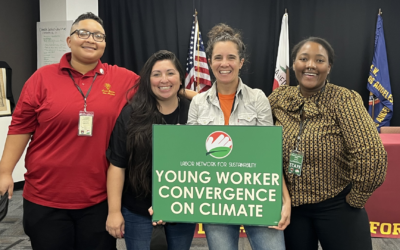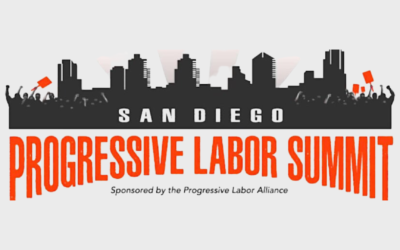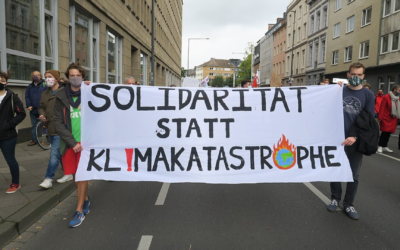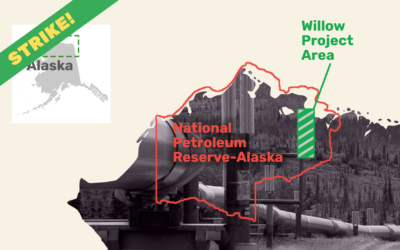Climate Strikes
Just Transition – New Book Tells All
Jeremy Brecher’s review of Dimitris Stevis’ new book Just Transitions: Promise and Contestation
What Happens to the Workers When Oil Refineries Close?
On October 30, 2020, the Marathon oil refinery in Contra Costa County, California, was permanently shut down and 345 unionized workers laid off. A new study from the UC Berkeley Labor Center found that 74% of former Marathon workers (excluding retirees) had found new jobs. Nearly one in five (19%) were not employed but actively searching for work. Their unemployment rate was 22.5% Their jobs paid $12 per hour less than their Marathon jobs, a 24% cut in pay.
LNS Young Workers Network Launches Monthly Calls
The Labor Network for Sustainability’s Young Worker Network is holding network calls on the first Tuesday of every month. We hope you or young workers from your union or organization can join us for our first Young Worker Network call on Tuesday, June 6th at 4 pm PT/5 pm MT/6 pm CT/7 pm ET.
A Day for Truth
LNS is cosponsoring the June 10 Teach Truth Day of Action to defend the freedom to learn and the rights of LGBTQ+ students. Protecting teachers’ right and responsibility to teach truth to our future generations is vital for a sustainable and just world.
San Diego Labor Summit: “Climate Resiliency Is Economic Resiliency”
At the end of April, California labor leaders and unionists gathered at the 6th Annual Progressive Labor Summit in San Diego, CA., an annual event that brings together members of the San Diego Labor community with left-of-center activists. The event drew roughly 500 panelists and participants.
“We Drive Together!” German Climate and Transit Strike
Excerpts from an interview with Friedrich Graeber of the Magdeberg grouping of the Youth Climate Strike group Fridays for Future:
All this goes back to three years ago when we approached the trade unions in Germany and we asked them if they were interested in working together, because we have to connect climate and social justice fights. We got an answer from public transport workers, who were interested in working together with us, and since then we started to build an alliance in more and more cities in Germany.
LNS Spotlight: Keith Brower Brown
Keith Brower Brown started in April as the first Labor-Climate Organizer at Labor Notes, the long-running media and organizing network for rank-and-file activists.
Protecting Workers and Communities – From Below Part 2: There Ought to Be a Law
As key states start reducing their use of coal, oil, and gas, what will happen to the workers who produce, transport, and burn those fossil fuels? The previous Commentary, “Protecting Workers and Communities – From Below: Part 1: On the Ground” described local programs to protect workers and communities from side effects of power plant closings and other climate protection measures. This Commentary portrays state-level programs to guard workers and communities against loss of livelihoods and income from climate protection policies.
The Willow Project: Which Side Should Labor Be On?
American unions increasingly recognize the threat of climate change to workers and their communities. Yet some unions continue to promote programs like Alaska’s Willow Project that violate the basic requirement of climate safety: that fossil fuel extraction and burning must be subject to a rapid, managed decline. Fortunately, they are not the only voices in the labor movement.
Los Angeles Strike Wins “Climate Champions” in Every School
After a three-day solidarity strike supporting school service workers who belong to SEIU local 99, educators in the United Teachers of Los Angeles (UTLA) won a tentative contract agreement that provides a 21% raise. It also included many of the UTLA’s “bargaining for the common good” objectives, including smaller classes, expanding housing for low-income families, special programs for Black students, and curriculum on climate change.









